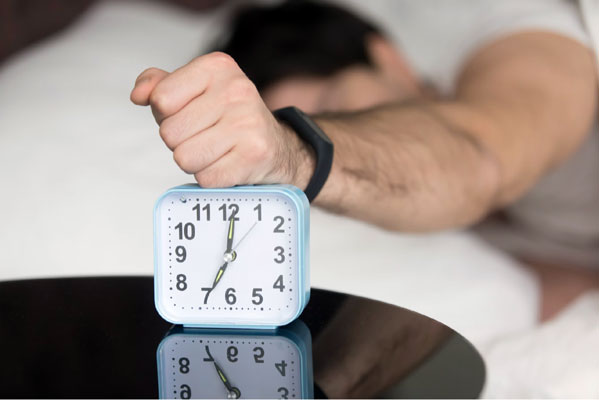Athletes are like the superheroes we grew up watching on Saturday morning cartoons, soaring above the rest with skills that seem out of reach. But their real edge isn’t just in the gym or on the field. It’s in the small, everyday habits that sharpen their minds and keep their bodies ready. You don’t need a pro contract or a personal trainer to tap into these tricks. These are mental and lifestyle moves, not physical workouts, and they’re built for anyone chasing a busy day, not a gold medal; the lifehacks like sportsbook review for the bettor, who’s looking to have fun with a reliable platform while playing responsibly. Let’s dive into five habits from the pros that can fit into your life, no sweat required.
1. The Morning Mind Hack (No Alarm Needed)
Imagine waking up like you did as a kid, no screeching alarm, just your body saying it’s time to roll. Pro athletes often skip the buzzer, letting their natural sleep cycles call the shots. Why? Jarring wake-ups can mess with your rest, leaving you foggy, kind of like a TV stuck on static. Research shows your body’s internal clock thrives on consistency, and a gentler start keeps you sharp. Current studies suggest this approach boosts energy, though sleep science is still evolving, so keep an eye on new findings.
Your Version: You might not ditch the alarm completely, but you can ease into the day. Crack a curtain or step outside for a hit of sunlight, even for a minute. It’s like flipping a switch to tell your brain the day’s begun. Pair it with avoiding your phone for 90 minutes after waking, a trick that can be used to keep your focus clear. No scrolling means no mental clutter, just a calm start like the old days before smartphones ruled our mornings.
2. Eating Like a Pro (Without a Personal Chef)
Elite athletes don’t just eat to fill up, and they eat smart to fire up. Take the “First Bite” strategy: getting protein in within 30 minutes of waking. Some players swear by it, grabbing Greek yogurt or a hard-boiled egg to kickstart their engines. It’s like tuning up a classic muscle car before hitting the road. Then there’s the snack swap. Instead of candy bars, pros like hockey players munch on walnuts. These little powerhouses pack fats that boost brainpower, keeping you sharp for the afternoon grind. Although this strategy would only work if you’re losing weight and not planning to grow muscles intensively,
Your Version: No chef? No problem. Keep it simple with a scoop of yogurt or a handful of nuts first thing. Swap out that midmorning donut for walnuts, and you’re fueling up like a champ. Think of it as swapping a sugar crash for a steady hum, like trading a rickety old bike for a smooth-riding cruiser. Studies link this to better blood sugar control, though experts are still digging into how it works long-term.
3. Stress Control Like a Goalie
Picture a soccer goalie facing a penalty kick, chaos all around, yet cool as ice. Their secret? The “4-4-4” breathing trick: inhale for four seconds, hold for four, exhale for four. Tennis pros use it too, squeezing it into two-minute breaks to reset. It’s a mental timeout, like a quarterback pausing in the pocket to read the field. Another pro move? A 30-second cold shower. It’s not full-on cryotherapy, but it jolts your focus awake, backed by research showing cold boosts alertness. More studies are exploring its limits, so results might shift.
Your Version: Next time your day’s a mess, try the 4-4-4 breath between meetings. It’s quick, free, and beats chugging coffee. Or hit the shower for a cold blast, just long enough to feel alive, like jumping into a lake on a summer day. It’s a mini reset that keeps you steady when life throws curveballs.
4. Movement You Can Do Anywhere
Ever see an Olympian stuck on a long flight? They don’t just sit there stiffening up. They do the “Airplane Seat Workout”: ankle circles, seated twists, little moves to stay loose. It’s like a halftime stretch for your body. At home, gymnasts have a desk fix: stand in a doorway, press your palms into the frame, lean forward. In two minutes, your shoulders loosen up, undoing hours of hunching. Research ties small movements to better flexibility, though how much you need is still under debate.
Your Version: Try ankle circles while you’re on a call, or twist in your chair during a break. For the desk fix, use any door frame, imagining you’re as limber as a kid on the playground monkey bars. It’s not about big workouts, just keeping the rust off, wherever you are.
5. The Nighttime Recovery Secret
Pros treat sleep like a game plan, using the “10-3-2-1” winddown: no caffeine 10 hours before bed, no food three hours before, no work two hours before, no screens one hour before. It’s a step-by-step cooldown, setting them up for solid rest. Javelin throwers add a twist: jotting down three things they nailed that day in a notebook. It’s a mental wrap-up, like a coach recapping a win, easing them into sleep. Sleep studies back this up, but the best mix of habits is still being fine-tuned.
Your Version: Start winding down with the 10-3-2-1 rule, tweaking as you go. Grab a notebook, scribble three wins, big or small, like you’re tallying points on an old arcade game. It’s a simple way to close the day strong, resting up for tomorrow’s kickoff.
Putting It All Together
These habits aren’t fancy, but they’re powerful. They’re like the clutch plays that turn a tight game into a blowout, small moves that stack up. You don’t need to overhaul your life, just pick one or two to test out. Maybe skip the phone in the morning, or try the breathing trick when stress hits. Sports science is always digging deeper, so check out athlete interviews or new research for extra tips. The pros have figured out what works, and now you’ve got the blueprint. Steal it, tweak it, make it yours.










